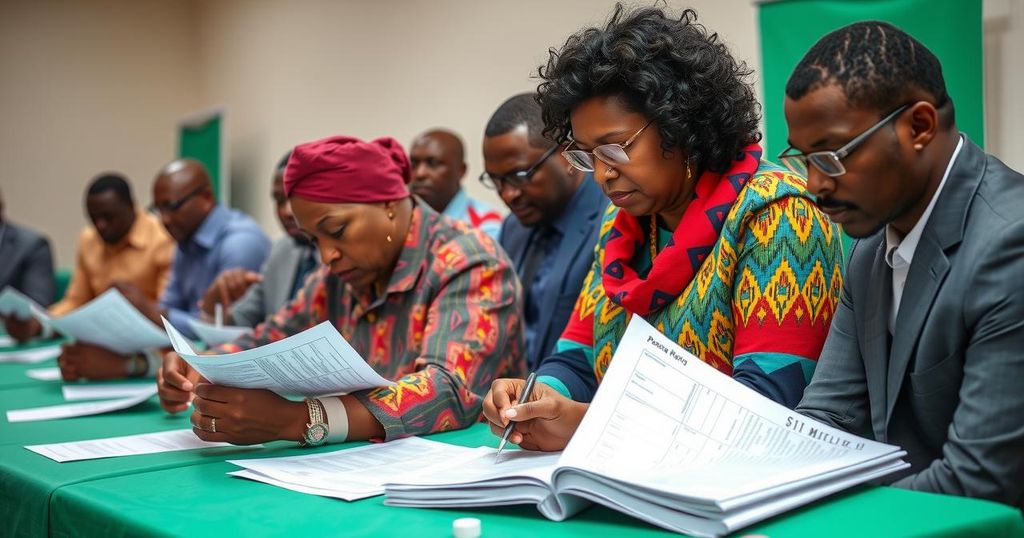Namibia’s Electoral Court ruled that opposition parties IPC and LPM can inspect electoral materials from the recent elections, amid claims of irregularities and suppressed voter turnout. The ruling marks the first step in a legal challenge against the SWAPO party’s election victory, which saw a reduced majority. Critics argue that logistical issues did not affect the results, whereas the opposition prepares to document evidence for potential court action.
Three judges of Namibia’s Electoral Court delivered a significant ruling on Friday, allowing the Independent Patriots for Change (IPC) and the Landless People’s Movement (LPM) to inspect the Election Commission’s materials from the recent presidential and legislative elections. Both parties have contested the election results, which confirmed the long-standing SWAPO party’s dominance in parliament, although with a diminished majority. The opposition is seeking evidence of alleged electoral irregularities, primarily claiming that voter turnout was hindered in certain regions due to insufficient ballot papers.
Critics maintain that while logistical irregularities were observed, they did not materially impact the overall election outcome. John Nakuta, a human rights lawyer and academic, articulated that the IPC and LPM aim to substantiate their claims regarding irregularities, suggesting they plan to request a court to nullify the results based on the evidence they uncover during their inspection.
Imms Nashinge, a spokesperson for the IPC, emphasized that their legal challenge is only commencing, with a formal court action expected within the week. He asserted that their party, along with several allied political entities, categorically rejects the election results, labeling the process as undermining democratic principles. Elections Commissioner Pius Iikwambi confirmed that an agreement had been reached with the opposition concerning the inspection, characterizing the court’s decision as merely an affirmation of that agreement.
De Wet Siluka, a spokesperson for the Electoral Commission, criticized the opposition for their absence at polling stations during the electoral process, suggesting that they missed opportunities to observe and verify procedures firsthand. Out of the twenty-two political entities that participated in the elections, thirteen secured seats in the National Assembly, where SWAPO continues to uphold a majority. Following the court’s ruling, it remains to be seen what concrete evidence, if any, the opposition parties will gather from their inspection of the election materials.
The Electoral Court’s ruling comes in the wake of Namibia’s recent presidential and National Assembly elections, wherein the SWAPO party continued its longstanding rule but garnered a reduced majority. Opposition parties have expressed discontent with the results, alleging irregularities including suppressed voter turnout. The court’s decision to permit the examination of electoral materials provides a legal pathway for these parties to substantiate their claims, amidst a backdrop of ongoing debates regarding electoral integrity in Namibia.
In conclusion, the recent ruling by Namibia’s Electoral Court permits opposition parties IPC and LPM to scrutinize electoral materials following their objections to the election results favoring SWAPO. As these parties pursue evidence of alleged irregularities, the dialogue surrounding electoral fairness and democratic principles in Namibia continues to evolve. The coming weeks will reveal whether this legal challenge can effectuate any substantial change regarding the election outcomes.
Original Source: www.voanews.com






